
A Concise History of U.S. Foreign Policy
Published by Rowman & Littlefield
A wholly owned subsidiary of The Rowman & Littlefield Publishing Group, Inc.
4501 Forbes Boulevard, Suite 200, Lanham, Maryland 20706
https://rowman.com
Unit A, Whitacre Mews, 26-34 Stannary Street, London SE11 4AB, United Kingdom
Copyright 2017 by Rowman & Littlefield
First edition 2006. Second edition 2010. Third edition 2014.
All rights reserved. No part of this book may be reproduced in any form or by any electronic or mechanical means, including information storage and retrieval systems, without written permission from the publisher, except by a reviewer who may quote passages in a review.
British Library Cataloguing in Publication Information Available
Library of Congress Cataloging-in-Publication Data
Names: Kaufman, Joyce P., author.
Title: A concise history of U.S. foreign policy / Joyce P. Kaufman.
Other titles: Concise history of US foreign policy | Concise history of United States foreign policy
Description: Fourth edition. | Lanham, Maryland : Rowman & Littlefield, 2017. | Includes bibliographical references and index.
Identifiers: LCCN 2016048442 (print) | LCCN 2016056731 (ebook) | ISBN 9781442270442 (cloth : alk. paper) | ISBN 9781442270459 (pbk. : alk. paper) | ISBN 9781442270466 (electronic)
Subjects: LCSH: United StatesForeign relations.
Classification: LCC E183.7 .K36 2017 (print) | LCC E183.7 (ebook) | DDC 327.73dc23 LC record available at https://lccn.loc.gov/2016048442
 TM The paper used in this publication meets the minimum requirements of American National Standard for Information Sciences Permanence of Paper for Printed Library Materials, ANSI/NISO Z39.48-1992.
TM The paper used in this publication meets the minimum requirements of American National Standard for Information Sciences Permanence of Paper for Printed Library Materials, ANSI/NISO Z39.48-1992.
Printed in the United States of America
Preface to the Fourth Edition
As I write this in the summer of 2016, three years after I revised the third edition, I cannot help but marvel at the current state of the world and how much has changed since 2013. While it was clear that the glow from the election of Barack Obama had faded, as we approach another major presidential election his popularity is on the rise again. The Brexit vote raises questions about the future of what had been one of the most stable and important organizations, the EU and also NATO, as well as what globalization really means. Rather than a time of optimism and hope, the summer of 2016 is one of uncertainty and instability as the United States has to react, once again, to major changes in the international system and to ask what those changes will mean to this country and to an incoming president. Rather than a world characterized by integration and cooperation, we once again seem to be facing disintegration and even a possible resurgence of the tensions that characterized the Cold War. There is ongoing instability in the Middle East, even in those countriesAfghanistan and Iraqthat the United States went to war to try to stabilize, calling into question even more the foreign policy decisions of earlier administrations. All of this must be assessed against the rhetoric and rancor of an especially vicious presidential campaign. In short, this is a time of uncertainty.
That said, no U.S. president has the luxury of sitting back and waiting to see what will happen next. Rather, he or she will have to continue to define U.S. foreign policy in a changing world from the moment of taking the oath of office in January. And from that perspective the lessons of the past can help guide the future. Noted foreign policy analyst Walter Russell Mead wrote in his book Special Providence that Americans, even those in positions of leadership and responsibility, show a lack of interest in the history of American foreign policy. These are virtually the same words used by George W. Bush when he sent the United States into Iraq in 2003, allegedly to protect the United States and its allies against Saddam Hussein and his weapons of mass destruction. In both these cases, the United States in the Philippines and in Iraq, more than one hundred years apart, the results were the same and the naysayers proved to be correct. In the first case, fighting continued in the Philippines until 1916, eighteen years after the United States went into the country. As of this writing in 2016, U.S. troops remain in Iraq thirteen years after they were sent in, and despite the Status of Forces Agreement that was to end U.S. involvement, the country remains unstable and the United States remains involved.
There are lessons to be learned from history, but we need to be willing to learn them. As each president seeks to chart his or her own course, it is often difficult to look at the past. Rather, it is far easier to see each situation as new and unique. But in doing so, the trends of history that could help inform the present tend to be lost. I am a political scientist and I am writing this from that disciplinary perspective. However, this book is historical in focus so that it will be possible to identify the trends, to see what has been continuous and what has changed. I believe that only by understanding these trends is it possible to truly understand the course of U.S. foreign policy and how we got to where we are today.
The fourth edition, like the three that preceded it, is meant to be a concise guide to understanding U.S. foreign policy and therefore it is not meant to be a definitive statement about the topic. As I noted in the prefaces to the previous editions, it can and should be augmented by other readings, including the use of primary source documents. Which documents to use, and how and when to refer to them, is up to each faculty member who chooses to adopt this book. Like earlier editions, this book is meant to be accessible to undergraduates and to anyone else who is interested in learning more about the history and evolution of U.S. foreign policy from the founding of the country to the present.
In writing this book initially and in revising it, I have learned a great deal from the myriad students who have taken this course and others with me at Whittier College, where teaching excellence is a high priority. While my students have learned the substance of the material from me, I have learned how to be a better teacher from them. And I have tried to use my teacher voice in writing this so that it would be comprehensible to anyone interested in the topic but who may not have any background on the topic beyond a desire to learn more.
As usual, I am grateful to Susan McEachern, my editor at Rowman & Littlefield and a good friend. While I was not yet ready to revise this book, she was the one who convinced me that it was time and further encouraged me by sending me the various reviews that she had received by faculty who had adopted this book. I thank all of them for their comments, suggestions, and corrections. Also at Rowman & Littlefield thanks go to assistant editor Rebeccah Shumaker, who responded quickly and patiently to all my questions, and Alden Perkins, production editor. I worked with Alden on previous books for Rowman & Littlefield and it was comforting to know that she would be looking over the production of this book as well.
I was fortunate to be able to revise this book in the most peaceful surroundings in the Eastern Sierra where we spend our summers. It would not be possible for me to have the focus necessary to do this writing were I not in a place that allows me to balance my writing and thinking with golf and tennis, activities that are necessary to my well-being in so many ways. My dear friends, both in the Eastern Sierra and in Whittier, have continued to provide a source of inspiration and encouragement. They are the ones to remind me of the need to balance the many aspects of my life that I juggle and are there to help me do so. In Whittier, Elizabeth, Anne, Kathy, and Trish are especially important and our walk-and-talk moments on the golf course are valued. In June Lake, the Divas have provided regular tennis diversions. I have found that being able to walk the golf course with Deborah or have lunch with Francesca after a tennis game provide the perspective that helps me think and gives me the distance necessary to write. The teachers (Judy, Jeanne, Suzanne, and Tookie) have also helped remind me how, before they are students of mine, someone has to teach children the fundamentals. Chuck keeps me laughing with his stories, and Russ reminds me that my tennis really is (and can continue to get) better. Thanks of course to Irene Carlyle, who read an early draft of the revision and provided her usual incisive comments. I owe a special debt to my dear friend from graduate school Lois Vietri, who came to teaching U.S. foreign policy rather late in her academic career but whose questions and approaches are insightful and have really made me think about how best to present some of the materials. I am grateful to all of them and to the countless others who have helped me over the years.
Next page

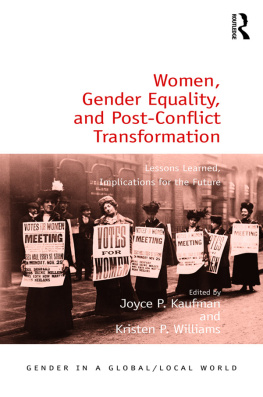
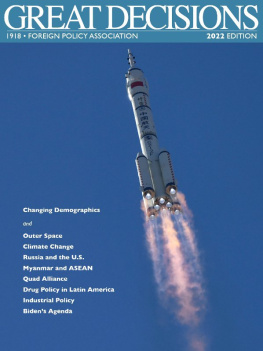
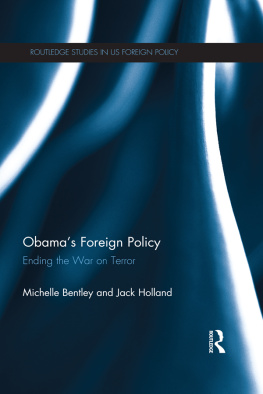

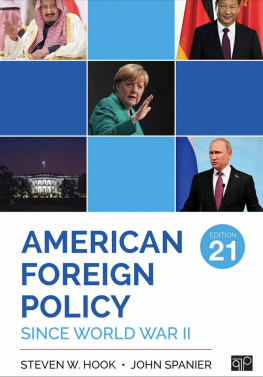
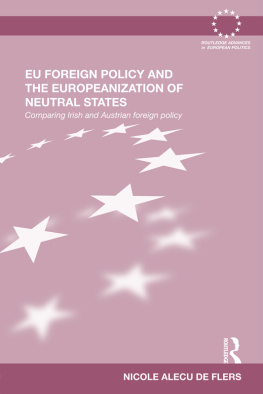

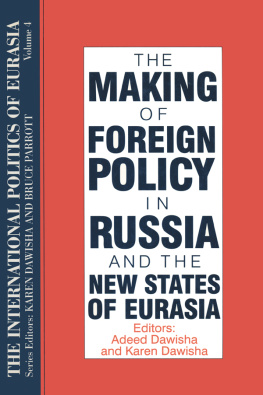


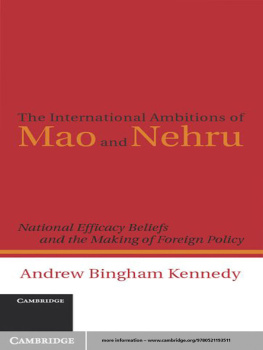
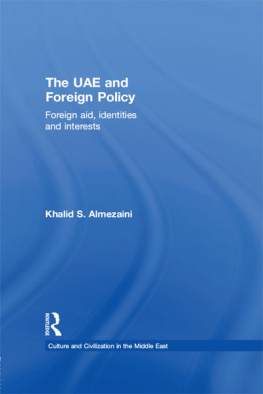

 TM The paper used in this publication meets the minimum requirements of American National Standard for Information Sciences Permanence of Paper for Printed Library Materials, ANSI/NISO Z39.48-1992.
TM The paper used in this publication meets the minimum requirements of American National Standard for Information Sciences Permanence of Paper for Printed Library Materials, ANSI/NISO Z39.48-1992.